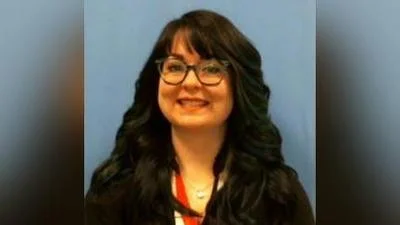The publication is reproduced in full below:
LAW ENFORCEMENT TRAINING FOR MENTAL HEALTH CRISIS RESPONSE ACT OF 2021
______
HON. MARCY KAPTUR
of ohio
in the house of representatives
Friday, May 28, 2021
Ms. KAPTUR. Madam Speaker, l rise to introduce the ``Law Enforcement Training for Mental Health Crisis Response Act of 2021.'' This bipartisan and bicameral legislation has broad support from a cross section of members on both sides of the aisle. The bill would authorize a grant program to law enforcement departments and corrections officers at the state, local territorial and tribal level to obtain vital behavioral health crisis response training to more safely and effectively resolve behavioral health crisis situations. Funding for this training would be authorized under the Byrne JAG program funding.
I would like to thank Congressman Anthony Gonzalez for his partnership and collaboration on today's legislation. I would also like to thank both Senator Sherrod Brown and Senator James Inhofe who introduced this bill as companion legislation in the Senate earlier this week.
The Edward Byrne Memorial Justice Assistance Grant (Byrne JAG) program, administered by the Bureau of Justice Assistance, supplies grants to local law enforcement entities for public safety initiatives. Grants authorized under this bill will be managed through Byrne JAG Prevention and Education programming.
Law enforcement officers are often the fist responders to behavioral health crises. And correctional officers must deal with difficult and fast changing mental health situations, which if not handled appropriately, put the life and safety of inmates and officers at risk.
One in every 10 calls for police response involve a person suffering from a mental illness; 1 in every 4 people killed by police suffer from a mental health problem; 1 in 3 people transported to a hospital emergency room for psychiatric reasons are taken by the police. When responding to calls, law enforcement officers need to be prepared to respond to all possible scenarios and, with increasing frequency, we're seeing that involve behavioral health crises. By improving training for these types of responses, we can better keep our officers safe, ensure individuals in crisis are treated with dignity, and improve trust amongst affected communities.
Our nation owes a deep debt of gratitude to the men and women managing these situations, and this bill takes an important step to provide resources to help better manage mental health crisis situations involving police and corrections officers. Today's legislation is supported by both the Fraternal Order of Police and the National Tactical Officers Association.
____________________
SOURCE: Congressional Record Vol. 167, No. 94
The Congressional Record is a unique source of public documentation. It started in 1873, documenting nearly all the major and minor policies being discussed and debated.
House Representatives' salaries are historically higher than the median US income.

 Alerts Sign-up
Alerts Sign-up